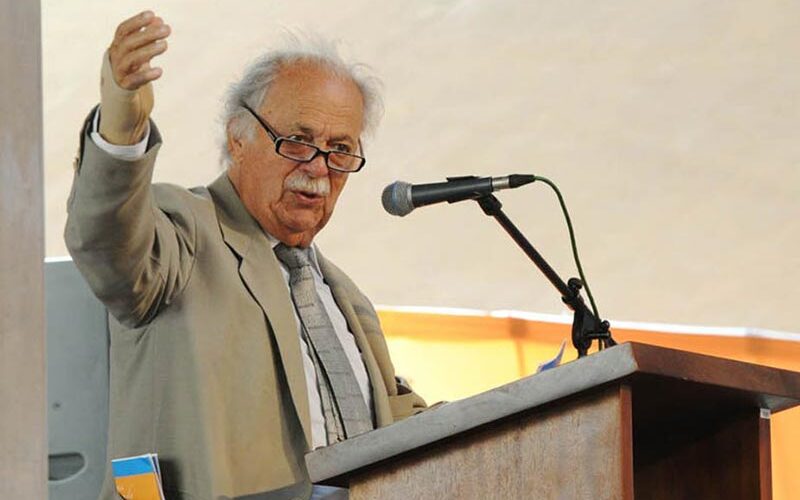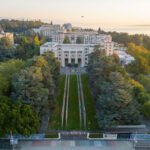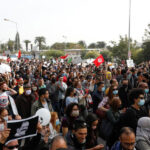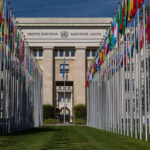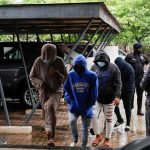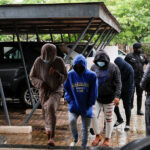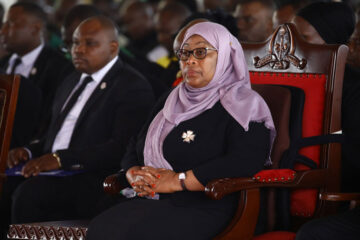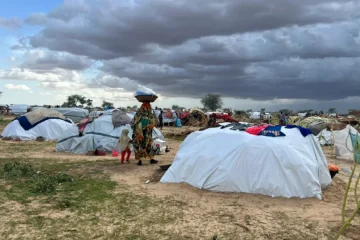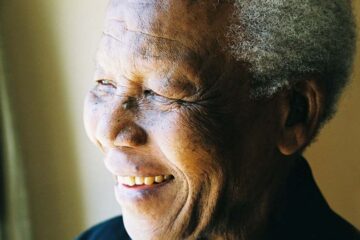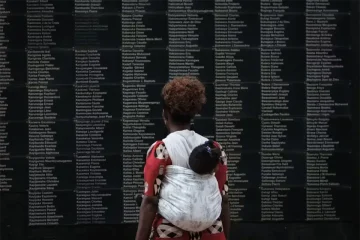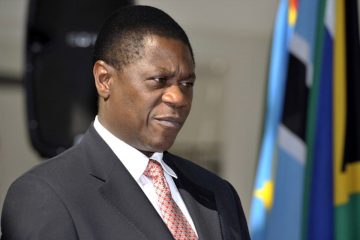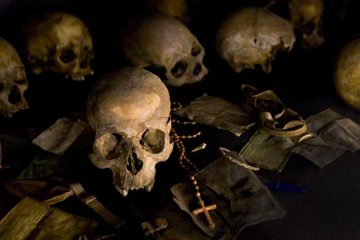
ADVOCATE George Bizos, who has died at the age of 92, stands in the pantheon of South African human rights lawyers and anti-apartheid activists.
Throughout his lengthy lifetime, he doggedly used the courts as his chosen terrain to fight back against a police state that blatantly violated the rule of law. His lifelong commitment to human rights left a legacy in South Africa’s constitution and bill of rights. He knew that democracy is not a destination but a lifelong quest: eternal vigilance is the price of liberty.
Bizos was among a number of young white people who arrived in South Africa as refugees from Europe, only to find themselves forced to align themselves with the oppressed black majority against apartheid. This company includes Joe Slovo, Lithuanian by birth, and also an advocate by training, who became leader of the South African Communist Party.
Bizos was born in 1927 in the Greek seashore village of Kirani. During the Nazi occupation of World War II, when 13 years old, he and his father helped seven New Zealand soldiers try to escape to Crete (at that time still under Allied rule). Adrift at sea in a boat, they were rescued by a British destroyer, and he and his father arrived as refugees in Johannesburg.
George graduated in 1950 with a law degree from the University of the Witwatersrand, where he also served on the Student Representative Council. The university described him as one of its greatest alumni, adding that
We remember him as a man of courage who always sided with the truth and who spent his lifetime fighting injustice and prejudice.
Bizos became aware of the racism in the country early on, and after 1948, the apartheid system. However, he focused his support for the liberation movement on serving as their lawyer in court, not himself becoming involved in political party actions.
Legal practice
Bizos practised as an advocate from 1954 to 1990.
He was soon advising Father Trevor Huddleston, the anti-apartheid Anglican missionary, and defending the leaders of the ANC and allied organisations, among them Nelson Mandela and Walter Sisulu, during the treason trial that ran from 1956 to 1961.
Among the charges was that they had conspired to draw up the Freedom Charter, the ANC’s blueprint for a free, non-racial South Africa. All the accused were eventually acquitted after the judges agreed the state had failed to show that the charter was a communist document. It was the longest treason trial in the country’s history.
Bizos also defended Mandela, Sisulu and eight others who were charged with sabotage in the Rivonia trial of 1963-64. He advised Mandela on the wording of his famous statement from the dock. Mandela stated that a non-racial South Africa was an ideal he hoped to live for, but if necessary was prepared to die for.
Eight of the 10 accused were eventually sentenced to life in prison. All but Denis Goldberg, who was white, were sent to Robben Island. Goldberg went to Pretoria Central prison. The apartheid laws of the time prohibited “inter-racial” mixing, even in jail.
Bizos outlived the longest-surviving of the triallists, Goldberg and Andrew Mlangeni, who passed away earlier this year.
Macabre duty
In a police state such as apartheid South Africa, a lawyer will all too often have the macabre duty of representing the dead. On behalf of their families, Bizos represented at inquests and at the Truth and Reconciliation Commission several government opponents who died at the hands of the apartheid regime – either in its prisons or outside. Among them were Ahmed Timol, Neil Aggett, Chris Hani, Ruth First, Steve Biko, Matthew Goniwe, Fort Calata, Sparrow Mkonto, and Sicelo Mhlauli.
He also defended the 22 accused in the Delmas treason trial, which ran from 1985 to 1989.
Bizos was a life-long campaigner against the death penalty. He also took part in the negotiations to release Mandela. In 1990 he joined the ANC legal and constitutional team which helped draft the interim constitution. He was an advisor through the negotiations to end apartheid (Codesa) and helped write laws such as the Truth and Reconciliation Act.
Life of activism
He helped found the Legal Resources Centre in 1978 and joined its constitutional litigation team in 1991: he led its team at the Marikana Commission of Inquiry in 2013. The commission, headed by Judge Ian Farlam, investigated the tragic incidents that culminated in the killing of 44 people, and injury to 250, in August 2012.
Also, during 2008, he represented the Chinese Association of South Africa in winning a ruling that Chinese people living in South Africa before 1990 must be designated as “previously disadvantaged” in terms of affirmative action and black economic empowerment proceedings.
He helped found the National Council of Lawyers for Human Rights in 1979. He served on the Judicial Service Commission between 1994 and 2009. The commission interviews candidates for judicial positions, makes recommendations for appointment to the bench and handles complaints brought against the judges.
He was an acting judge of the High Court in South Africa, and a judge in the Botswana Appeal Court 1985-1993. He also defended Morgan Tsvangirai, the Zimbabwean opposition leader, in a Zimbabwe trial in 2003.
Bizos authored three books: No One to Blame? In Pursuit of Justice in South Africa (1998); Odyssey to Freedom (2011); and Sixty-Five Years of Friendship (2017).
Post-apartheid
George Bizos remained steadfast in his commitment to human rights after South Africa became a democracy in 1994. His appearance on behalf of the families of mine workers shot by the police at the Marikana Commission of Inquiry was merely the most high-profile of his efforts to seek justice for the poor and marginalised.
According to Nicole Fritz, CEO of Freedom Under Law, Bizos represented what law can and should be: essentially humane, principled, decent, just.
The evocation of the rule of law upheld by Bizos and those like Mandela, Sisulu, Arthur Chaskalson, as expansive and merciful, a means to secure equal rights for all, ultimately defeated the law of the apartheid state: cruel, merciless, oppressive.
While Bizos helped usher in a new constitutional democracy, he showed in the aftermath that the struggle to perfect justice continued, that it is the work of a lifetime, says Fritz:
His commitment to justice was inexhaustible. He continued to work and serve justice even when he could, with every good reason, have sought a well-deserved and restful retirement. And that commitment to justice extended beyond South Africa.
She recalls how, travelling with him to Harare a few years back, at both O.R. Tambo International Airport and at Harare airport, he was virtually mobbed by fellow travellers: “There’s George Bizos!”, “There’s Madiba’s lawyer!” And later in a Harare magistrate’s court, the reception was similar: and not just from the accused facing politically motivated charges and whom he had come to support and stand with in solidarity. He got the same reception from the court officials.
That huge affection in which he was held by so many, not just in this country but across the region, is testimony to the enormous contribution he made: to his unceasing commitment to justice. His example will stand as a light – an example of the role one can play, and the difference to be made, even in the darkest of days.
Accolades
His awards include the Order for Meritorious Service (1999); the International Trial Lawyer of the Year (2001) from the International Academy of Trial Lawyers; and in 2004 the International Bar Association honoured him with the Barnard Simons Memorial Award.
He married Arethe Daflos in 1948; she passed away in 2017. George Bizos is survived by three sons and seven grandchildren. – The Conversation.

